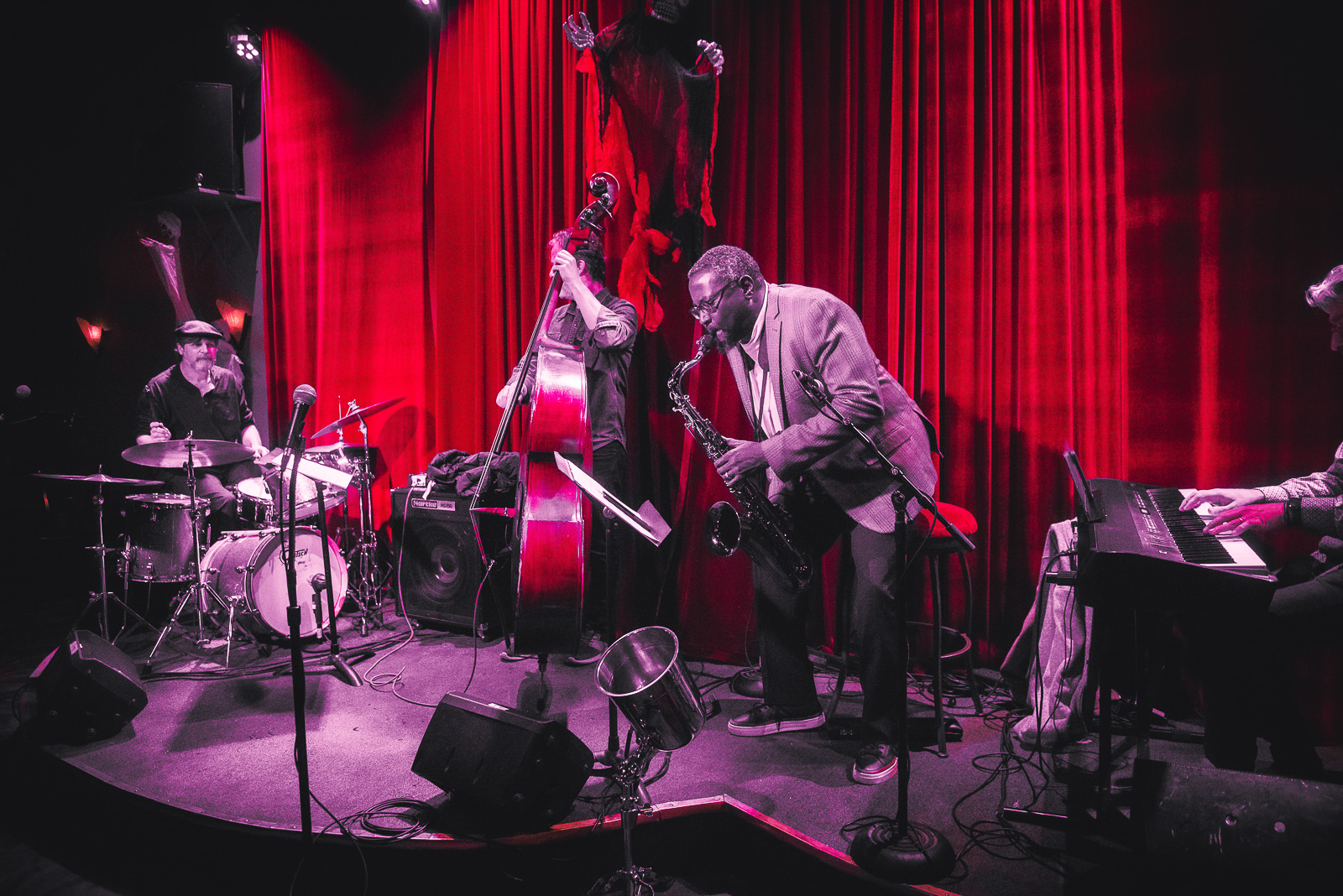Sundays are for jazz.
And those who are in the know, know it’s the most popular night of the week at The Balcony Club.
“Jazz has an identity,” owner and performer David Luckey says. “It’s intelligent.”
Before the Balcony Club was even a concept, the space was used as an attic by the Lakewood Theater when it opened in 1938. There are still traces of the original staircase behind the walls, but now the only entrance is from the outside.
“It’s not a place you find by accident,” he says about the music lounge.
Luckey, a Lake Highlands resident, now switches between running the club, and playing it. He took over the venue in July 2021, and bounces between instruments depending on what the night calls for.
He may be the most recent owner of the Balcony Club, but he’s been playing the venue since 2018. For a while he worked the happy hour slot on Sundays, playing piano and singing. He took a quick break during the year he wrote his dissertation — he has a Ph.D in religion and culture from SMU — but returned soon after to the place that helped him “decompress.”
Jazz parallels Luckey’s interest in theology. By day, he is an adjunct at SMU teaching theology and world religions. But by night, it’s all about the jazz.
“I wear a few hats,” he says.
When the Balcony Club opened in 1988, the stage was pushed toward the front. Guests would awkwardly make it through the stage area and then through the thick clouds of cigar smoke before finding a table.
The Balcony Club, which celebrated its 35th anniversary in October, hosts all genres of music throughout the week. Blues, rock n’ roll, classic rock and R&B, even open mic nights are on the table.
It’s promised its patrons that day-to-day and week-to-week, no two performances will be the same.
“The Balcony Club has been the linchpin holding the music community together,” Luckey says. “They love that all of us love playing here … I get chills thinking about it.”
Legend has it that the place is haunted by past performers. Cocktail glasses have been known to slide and things have been known to move. At this point, it’s part of the character of the place and a running joke among the regulars.
It’s not uncommon to get a shoulder tap on no-talking nights, which resemble listening rooms in Paris. Guests can focus on the music, each note battling it out or an instrument getting its solo.
Luckey describes the exchange between jazz artists as an “improvisational language,” with each performer building off the other.
“You’re dealing with interlocutors or conversation partners of the most skilled variety,” Luckey says. “It’s a conversation with rhythm and harmony, with a great deal of dissonance. They work inside a framework and give one another space to solo over segments of it and pass it around where every musician on the stage gets to articulate their voice evenly.”
The BYOF — bring your own food — destination rotates between seasonal cocktail menus.
In the back, a large wall holds caricatures of past and current musicians and previous owner Teddy Daves and his wife, Lorena. Everyone from bassist Chuck Rainey to keyboard players for Michael Bublé and guitarists for Hall and Oates have graced the venue.
“It’s the craziest thing ever,” says James May, who has performed regularly since the ‘90s. “It’s like you’d be sitting in here and playing everything. And all of a sudden, somebody who’s somebody walks in, you go ‘OK, I know who it is.’”
The intimate lounge credits the feeling to its seasoned musicians and reliable regulars.
“If it ain’t broke, don’t fix it,” Luckey says. “Especially when something has been something to someone for a long time, and it’s been celebrated for a long time.”
Elaine True happened upon the club after wanting to go out after a medical procedure in 2013.
Ten years later, she visits four nights a week and has dubbed herself the Balcony Club Queen. She can be found at her regular table with her friends, and thinks of it as the Dallas version of Cheers.
“Everybody likes everybody,” True says. “Why sit home by myself, when it’s fun here?”






